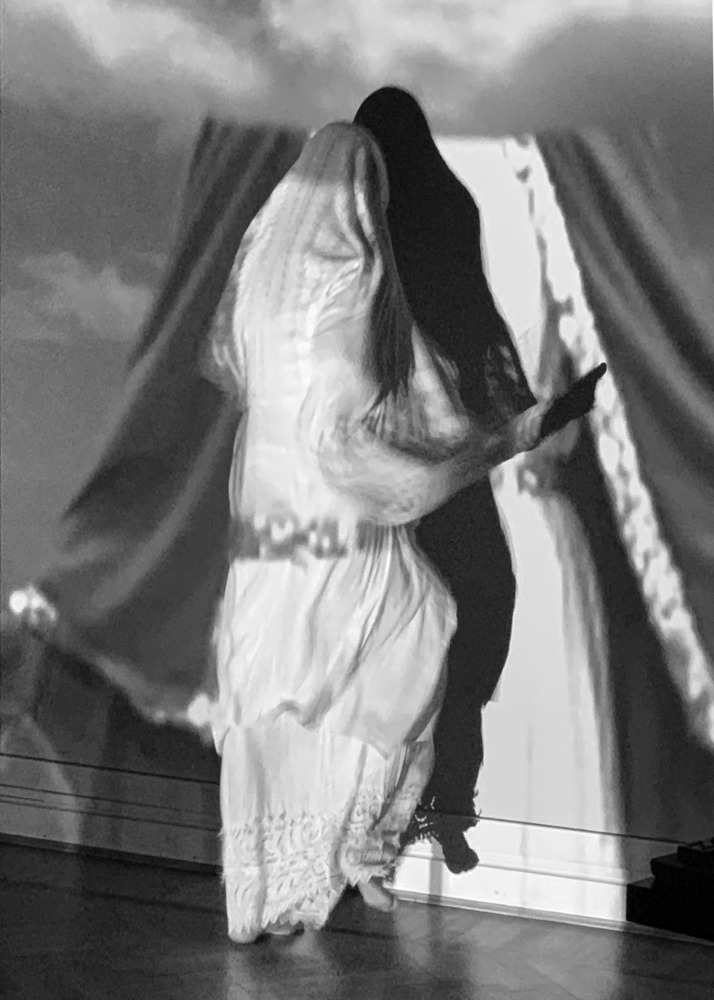
THE EYE OF THE BEHOLDER. PERFORMING RESISTANCE
first performed on November 25, 2019
Rockefeller Bellagio Center Residency lecture hall, Bellagio, Italy
performed once in 2019
LAURA ANDERSON BARBATA
Brooklyn, NY / Mexico City, Mexico
lauraandersonbarbata.com
THE EYE OF THE BEHOLDER. PERFORMING RESISTANCE
LAURA ANDERSON BARBATA
During my residency at the Rockefeller Foundation Bellagio Center (November, 2019) I wrote and performed a new twenty minute performance about Victorian Mexican Indigenous mezzo soprano Julia Pastrana, billed as “The Ugliest Woman in the World.” The title was given to her by her manager-husband, Theodore Lent, who exhibited her in the United States and Europe during her life and after her death. Her embalmed remains continued to be displayed under that moniker for 150 years. The performance combines dance, video, slide projections, and a lecture to conduct the audience through a series of stories, exercises, and thought experiments that take us from the colonization of the Americas and Mexico to today.
The performance begins with a large video projection onto the white, draping clothing I wear while I perform a traditional dance that becomes more and more frenzied as the video reveals an approaching religious figure. I then switch to a performed lecture format to explain the presagios funestos (ill fated omens) seen across Mexico and interpreted by Emperor Moctezuma to signify the end of the great Tenochtitlan only ten years before their arrival. This is followed by one image—a colonial representation of the people of the Americas—which serves as a bridge to discuss with the audience the automated systems operating through our eyes and brain and how quickly meaning is assigned to what is before us. I then lead the audience through an exercise to see from our heart in order to reassign meaning to the image. This paves the way for us to be able to truly see Julia Pastrana and to learn from the past so that we can recognize the ways in which the same forms of oppression that Julia Pastrana suffered are still operating in our societies today.